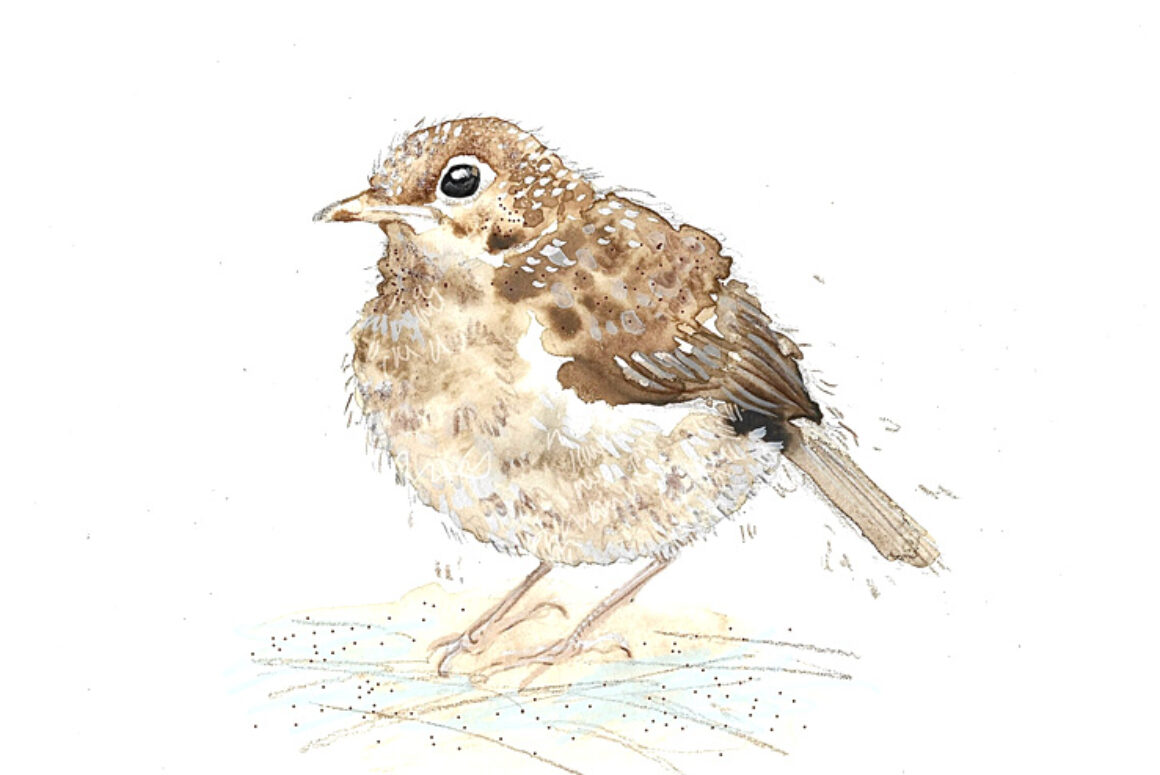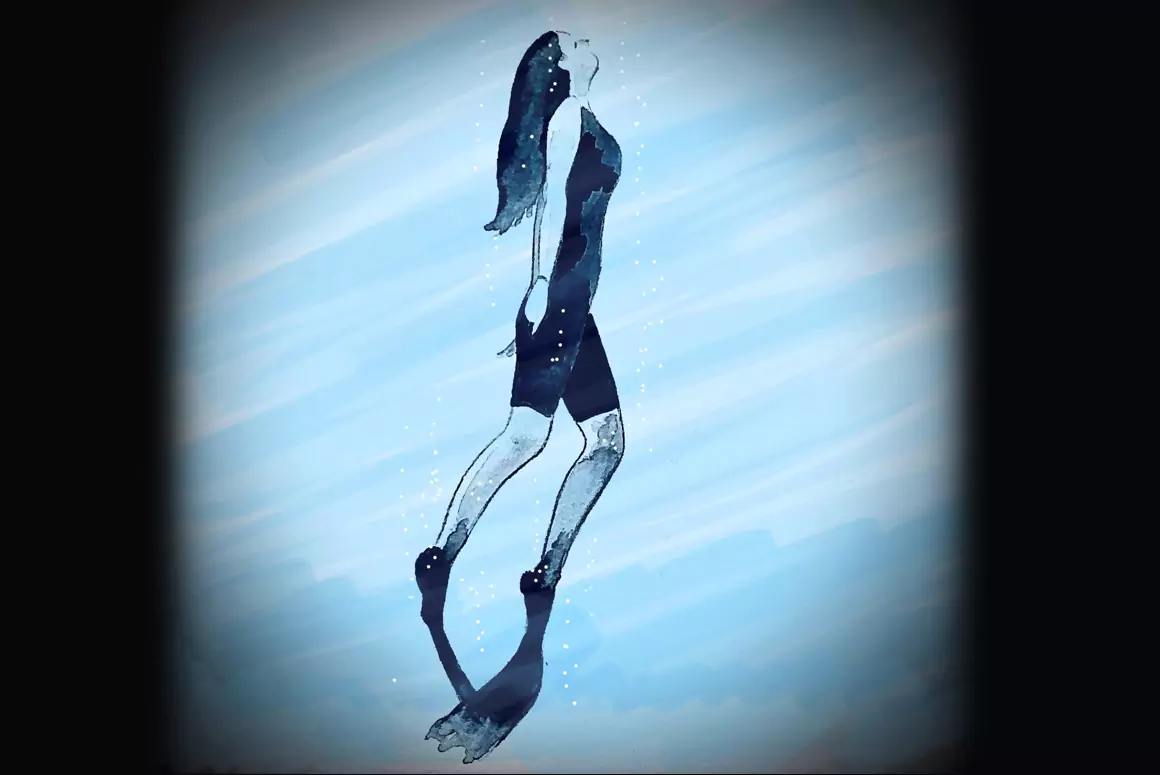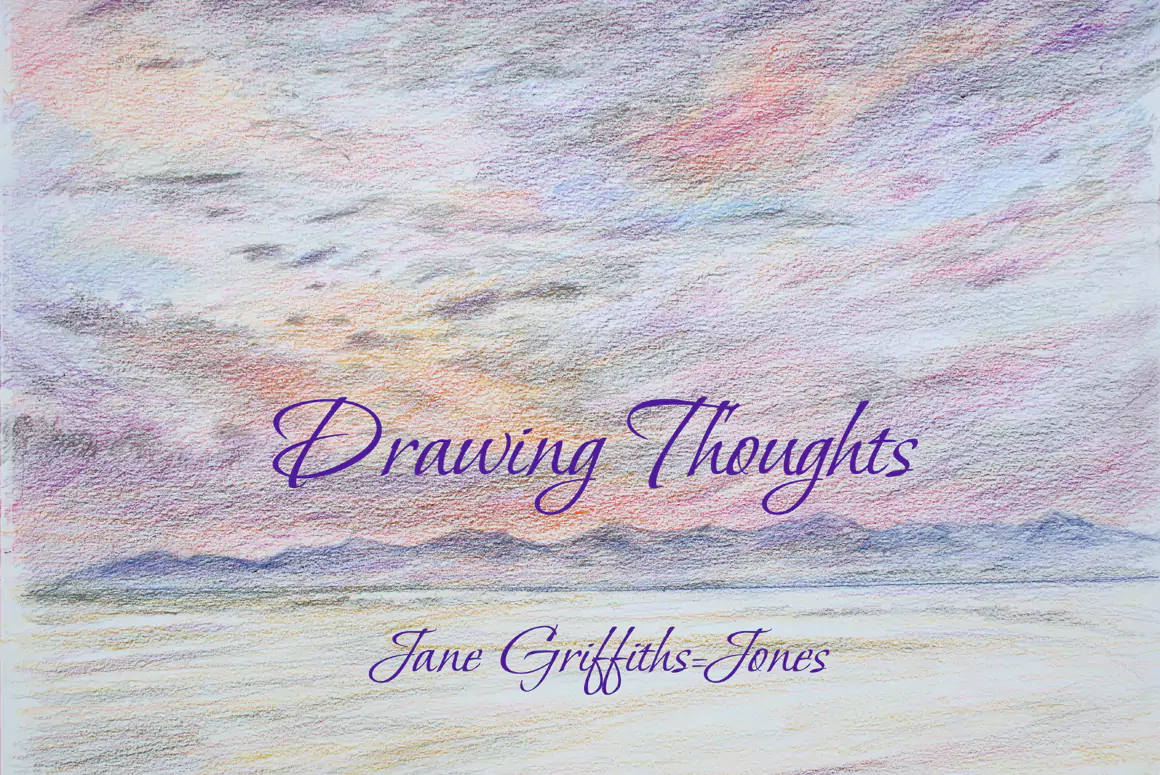Hugo Morton and I walk up Barton Hill in the spring-time. The bird-song trills in the woods around us.
‘Hopefully,’ he says, ‘we’ll find a blackbird’s nest.’
We slip through a gap in the low hedge, just below Barton Cottage where old Freddy and Annie Boswell live, and enter the dark wood.
‘There!’ I say, ‘a blackbird jus’ came out of that bush! A male! See his bright orange beak! Betcha he’s off to get food for the female who’s sitting on the eggs!’
Hugo rushes towards the low bush.
‘Le’s have a gander, Tom!’
We part some branches and look inside. Small, glittering eyes look out at us. But she stays put, guarding her eggs. Hugo shoves a bony hand towards the nest. She flutters upwards with a loud clattering noise, crashing into branches, and flies to a nearby bush. Her harsh noise becomes a low chuck-chuck of protest.
‘Here,’ he says grinning, ‘one for you an’ one for me. An’ I left one for her.’ Hugo pushes his grimy glasses up his nose.
He drops an egg, still warm, into the palm of my hand. Pale blue-green with soft brown speckles. I rub my thumb gently over its perfect oval shape then take a couple of pins from my lapel and hand him one.
‘Le’s blow ’em and then add ’em to our collection back home!’
‘Pink-pink-pink-pink,’ she goes, her danger call, from the top of the nearby bush.
We ignore her and prick holes in both ends of the eggs, put our mouths to the narrower ends and blow. Transparent fluid mixed with yolk, bubbles out from the bottom of the eggs, splattering the undergrowth a bright yellow.
‘What yer doin’, yer young vermin?’
We look up and see Freddy Boswell leaning over his garden fence, dirt in the deep furrows of his puzzled face.
‘Hiyah, Freddy!’ I say.
‘Why, ’tis Master Morton an’ the parson’s boy!’ He’s holding his hand over his eyes and peering into the murky wood where we are.
‘Collecting birds’ eggs. Adding to our collection,’ explains Hugo.
‘An ruinin’ the singing in the woods!’
Hugo puts his hands on his hips and barks: ‘This is my wood, y’know, Freddy!’
‘True, young master, true. But ’ee dun’t own the birds too! Not when they flies off fer sure!’
He turns his back on us and shuffles back into his cottage, muttering under his breath.
When I get home I run upstairs to my bedroom, open the door of the bedside table and take out the cardboard box which holds my egg collection. They nestle in cotton wool. Beautiful and perfect. The white egg of the robin, speckled with a light red; the great tits’, a similar white but a deeper speckle of red, more a light brown; the house martin’s, pure white, elegant and narrow. I carefully place the blackbird’s amongst them: the pale blue-green shines out from the white of the cotton wool. Its loveliness spreads through the box, boosting the beauty of the others.
‘Where’s Dad?’ I say when I come downstairs.
‘In the garden,’ says my mother. ‘Where else!’
I hold the box carefully. I need to show him my latest egg. I go into the old stable, the oval cobbles beneath my feet, the hen sitting in the windowsill clucking, pleased she’s laying one of her brown eggs. She looks at me beadily, her head nodding from side to side. The far double door is open. I rush through and see my father crouched down on his haunches. He’s got his hand out and is making soft crooning noises. A robin, as bold as its red breast, flutters in and takes the grub from his hand. He smiles and looks up:
‘That’s the first time I’ve got one to do that!’
I can see he’s been banging out old compost from his terracotta pots and that there are juicy worms and other crawlies in it. I put the cardboard box behind my back. I’m not so sure he’ll want to see my new egg just now.
‘Where you been, boy?’
‘Up in Barton wood. Listenin’ to the birdsong,’ I half-lie.
‘A song-symphony every year! And it’s free! Here,’ he says smiling, ‘give us a hand to stack these pots ready for washing.’
Early the next morning there’s the familiar slithering and scraping on the rotten dairy roof. He’s always in a hurry. One day Hugo’ll go through it. I swing the window up. He comes through head first and ends up sprawled on the floor, his specs skidding across the floorboards. I pick them up and polish them with my pyjama sleeve.
‘Thanks, Tom. Should be able to spot nests now! We could, erm, add to our Turdidae…’
I look blank. ‘Turds?’ I ask, perplexed. ‘What do we want to collect turds for?’
‘Tom, there are days when I despair of you! Turdidae is the family name for blackbirds, thrushes and the like. So a blackbird is Turdus Merula. A thrush is Turdus Philomelos. A good singer, see. From the Latin or Greek or whatever.’
Hugo, I think, has been swotting in the Brig’s library. And now he’s showing off – as usual. But a thrush’s egg! I’ve seen the one Bruce Kendrick has. It’s even lovelier than the blackbird’s: a bright turquoise-blue, spotted with black dots!
‘I’d love a Mellow Turd one!’ I say.
‘Turdus Philomelos, you oik!’
I throw my clothes on and follow him through the open window and drop down into the yard below. He bounds ahead, his light-brown hair flapping.
Low slanting rays of the sun flicker through the early morning wood. A damp, earthy smell rises up from the ground. Small birds chatter prettily, larger ones, crows and pigeons, caw and coo loudly. A magpie chatters and in a flurry of black and white rises raucously.
‘’Tis you pair agin!’
We look towards the low garden gate where Freddy is standing, his dirty lined face spreading into a grin.
‘’Ere,’ he says, ‘come on in. Got somethin’ to show yer.’
He opens the gate and in we go. Rows of earthed-up potatoes are just showing. Young green cabbages are sprouting. Seeds in neat rows are pricking through a fine tilth.
‘Come in the house. Come an’ see!’ Excited, he’s repeating himself.
In the kitchen, Annie, his wife, her grey hair tied in pigtails, grins at us toothlessly. She’s boiling a black greasy kettle on an old black range. Grimy rushes are strewn on the earth floor.
‘Ere, Annie ol’ girl, fill this cup up fer me will yer?’
Steam hissing, she tips the spout of the ancient kettle and does so. Freddy reaches up to a shelf thick with dust and takes down a pot of honey. He spoons some into the hot water, blows on it, and moves across to the dingy window where frayed, mildewed curtains almost drop to the sill.
‘Look at the lil’ divil!’
In a battered cardboard box is a tiny young bird with downy feathers! Its eyelids roll. It nestles amongst moss and straw. It opens its beak wide and looks up at Freddy. Holding the spoon steadily he tips honeyed water down its throat.
‘E’ll be on solids soon!’ says Annie proudly, as if she’s the bird’s mother.
‘I say,’ says Hugo, ‘what’ll he eat when he can?’
‘Caterpillars an’ the like. You sin my young cabbages didn’t yer? Plen’y of ’em soon, I can tell ’ee!’
‘How did you find him?’ I ask.
‘In the wood, jus’ on the floor, like. I ’spec’ one of them maggies dropped ’un when they pinched ’im and the others from their nest.’
He spoons more of the honeyed water down the tiny bird’s throat. It looks up at Freddy, its huge mouth open.
‘And what,’ says Hugo, ‘is he?’
‘’Tis a young thrush, Master Hugo. A song-thrush at that.’ We look at the small fluffy bird, brown above, a buffish white beneath, speckled with black spots. ‘Mistle’s is bigger, see.’
I sense that Hugo is about to give his Turdidae lecture and so I say:
‘Before long he’ll be singin’ in the wood then?’
Freddy and Annie both nod and grin.
‘Tha’s wha’ we likes,’ she says, ‘them singin’ in the wood.’
We walk down Barton Hill. The sun has climbed higher in the sky, shining on the still water of East Bay. We’ve been unsuccessful. We didn’t find a thrush’s nest with its lovely eggs. But then we didn’t try very hard.
‘What’ll you do, Tom, with your egg collection?’ Hugo looks thoughtful, worried almost. He pushes his glasses up his nose and frowns.
I stop and look back up the hill, at the lonely cottage wedged into Barton Wood.
‘I don’t think I’ll add to it,’ I say.
He nods. ‘Fancy some Scout Dough for breakfast?’
Flour and water made with grimy fingers. Just about bearable with honey spread on top. My empty stomach turns.
‘Why not come home with me and have a nice boiled egg? She was laying a few in the window of the old stable yesterday.’
He grins. ‘That’ud be just the thing!’





